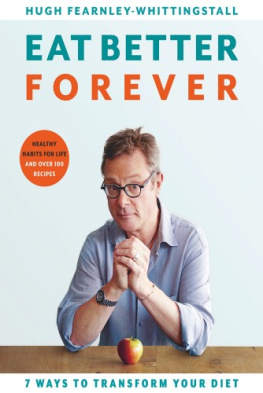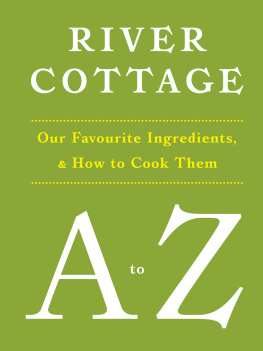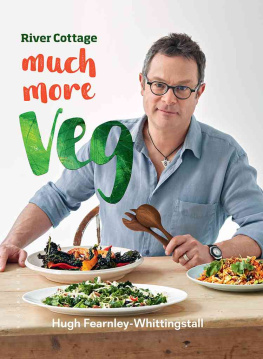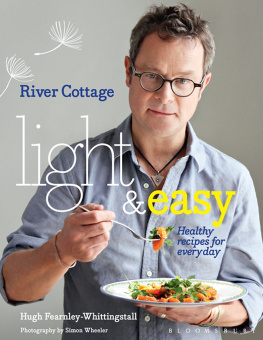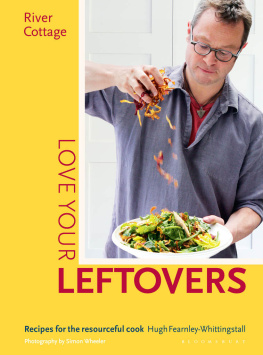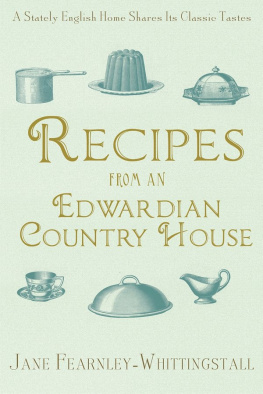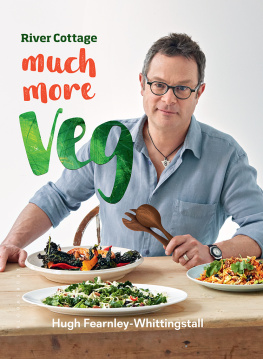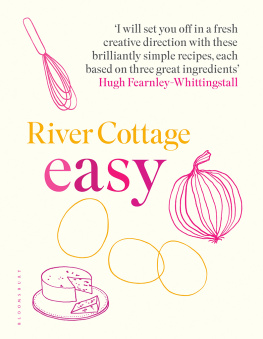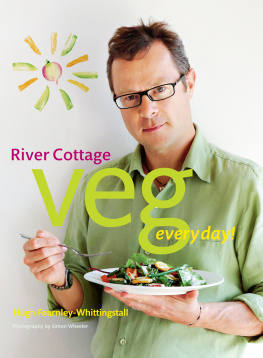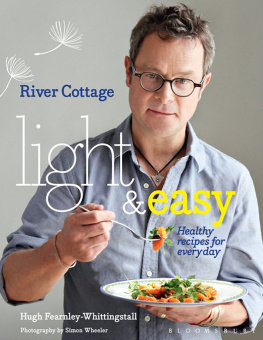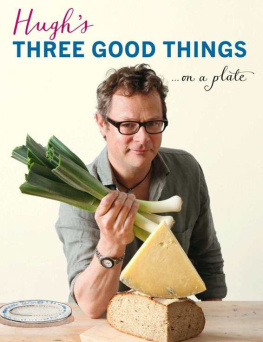Hugh Fearnley-Whittingstall - 100 ways to eat better
Here you can read online Hugh Fearnley-Whittingstall - 100 ways to eat better full text of the book (entire story) in english for free. Download pdf and epub, get meaning, cover and reviews about this ebook. year: 2020, genre: Children. Description of the work, (preface) as well as reviews are available. Best literature library LitArk.com created for fans of good reading and offers a wide selection of genres:
Romance novel
Science fiction
Adventure
Detective
Science
History
Home and family
Prose
Art
Politics
Computer
Non-fiction
Religion
Business
Children
Humor
Choose a favorite category and find really read worthwhile books. Enjoy immersion in the world of imagination, feel the emotions of the characters or learn something new for yourself, make an fascinating discovery.
- Book:100 ways to eat better
- Author:
- Genre:
- Year:2020
- Rating:3 / 5
- Favourites:Add to favourites
- Your mark:
- 60
- 1
- 2
- 3
- 4
- 5
100 ways to eat better: summary, description and annotation
We offer to read an annotation, description, summary or preface (depends on what the author of the book "100 ways to eat better" wrote himself). If you haven't found the necessary information about the book — write in the comments, we will try to find it.
Hugh Fearnley-Whittingstall: author's other books
Who wrote 100 ways to eat better? Find out the surname, the name of the author of the book and a list of all author's works by series.
100 ways to eat better — read online for free the complete book (whole text) full work
Below is the text of the book, divided by pages. System saving the place of the last page read, allows you to conveniently read the book "100 ways to eat better" online for free, without having to search again every time where you left off. Put a bookmark, and you can go to the page where you finished reading at any time.
Font size:
Interval:
Bookmark:


For Jess and Nikki, with immeasurable thanks for your immoderate help with this, and much else besides
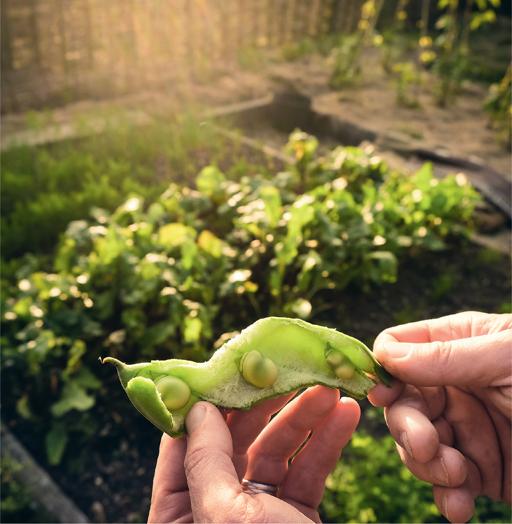

The food we eat is the most important factor influencing our health and well-being. Yet despite (or perhaps because of) a decades-long debate about diet, many of us still feel confused, unhappy, guilty and anxious about what we eat. I want to help change that. And this book is my most focused attempt so far.
More than ever, in the light of the Covid-19 pandemic, its vital that everybody knows how much making good food choices can do to help us stay well. Its not just the healthy functioning of our digestive systems thats at stake. Its the complex web of activities in every cell of our body what is collectively referred to as our immune system. So, when we eat well, we dont just function well day to day, we also fight back when viruses and bacteria come to call. We are far better at fending off challenges to our body and, when we do get ill, at recovering quickly.
I believe that a helpful book about healthy eating must not be a negative thing, with long lists of banned foods and dietary restrictions. It needs to lead with a positive understanding of what the good foods are, and it needs to make it easier for us to choose, eat and enjoy much more of them. Thats my plan here.
Im also going to talk about when and how we eat. Thats going to help us understand why we eat certain foods that we know we would be better off not eating; and it will help us replace them with the good stuff. Were going to combine clearer understanding with achievable actions and delicious recipes so we can eat better, not just for a while, but forever.
Before we get to where were going, lets look at where we are. Although we are living longer (on average 82 years in the UK), many of us spend our last 20 years or so in poor health, often with conditions which could be prevented through different lifestyles primarily by eating better. 67% of men and 62% of women are above a healthy weight; a third of us are obese. Around 50% of adults are trying to lose weight, usually unsuccessfully. And the age at which our health starts to be negatively affected by our weight gets younger by the year. So it seems that our daily bread and our extended life span brings us neither health nor happiness. We have to change that.
I believe that the sheer volume of information about diet that now speeds its way backwards and forwards across the globe is actually part of the problem. The constant in-flow of data, advice and opinion that we are exposed to is often contradictory, unrealistic and unhelpful. A great deal of it, in fact, is flam, fashion and faddism. But that doesnt mean we should give up, or dismiss it all. On the contrary, I think its vital to realise that in amongst the cacophony there is some very sound advice.
The last few years in particular have seen some genuinely useful advances in evidence-based science around healthy eating. This is actually a very good time to mine the seemingly bottomless pit of modern dietary advice for some golden nuggets of true wisdom. Or, in other words, to size up the latest good science and summarise it clearly. Thats been my mission for the last two years, and this book is the result.
I want to stress that this is a collaborative effort. I have strong views about healthy eating, based on some pretty in-depth reading and research, but also on my experiences as a chef, writer, cook and broadcaster in the food industry for over 30 years. But I also know the value of discussing those views with people for whom understanding diet and human health is a full-time job. Ive talked to many experts in this field, including Dr Giles Yeo, Professor Tim Spector and Professor Mark Mattson, and youll find them quoted in the text. Ive also asked one of the food scientists I most admire, dietitian Dr Michelle Harvie, of the Prevent Breast Cancer Research Unit in Manchester, to read (several drafts!) of this text, and comment and challenge me along the way. Her support has hugely increased my confidence that this book really can help you change.
One problem I see looming large (and my collaborators happen to agree with me) is that the world of diet publishing and the wellness sector continue to orbit around single-fix ideas. Most books offer up one big commitment you can make, one diet plan you can sign up to, one headline-grabbing concept you can market the crap out of Some of those books may help some people, some of the time. But I think we can, and must, do better than that. And we will start doing better as soon as we stop pretending that the combined complexities of what we eat, and what our bodies do with it, can be reduced to a single mantra or one neat idea, be it Paleo, Fasting, High-fibre, Zero-sugar or whatever. They surely cant because the variables are endlessly well, variable. We need to take that into account. Ive written this book quite deliberately in order to buck this one big idea trend.
Ive been paying attention to new and not so new ideas about healthy eating ever since, as an undergraduate, I took steps to reduce my student beer (and biscuit) belly. Ive always had a taste for the good things of life including beer and wine, burgers and kebabs, fish and chips, and chocolate, cakes and puds. But I have also tried to steer my appetite towards things I know are good for me. I used to struggle, for instance, to enjoy certain vegetables, including tomatoes, beetroot, spinach, mushrooms and sweetcorn. But as a young adult teaching myself to cook, and then a chef learning on the job, I deliberately set out to find better specimens of these vegetables, and ways to cook them that I could first tolerate, then enjoy.
Learning to grow food myself massively enhanced this process, and now I have a love for pretty much every fruit and vegetable under the sun. This journey has taken time, but its convinced me that with the right help and guidance we can all make important changes to the way we eat. We can learn to eat better. And that is so much more enduring, and important for our health and happiness, than going on a diet.
Ive always enjoyed good food, but the meaning of that phase has evolved for me. It still means pleasure-bringing and therefore good for the soul, yes, but also good for my health, my familys health and the health of my environment. I have never stopped trying to learn more about what good eating really means, and as a consequence my eating and drinking habits have evolved over the decades. Its been a meandering kind of road, but I am now at a place where Im confident that Im making reasonable decisions about what to eat most of the time! I still make some less good decisions a second helping of ice cream, a packet of crisps on the train but these days I am much more aware of them. I dont beat myself up about my poorer choices, because I know Im making them less often than I used to.
I have developed an approach to eating and living that is working well for me. Im lighter, healthier, fitter and less anxious than I have been for years. I sleep better and I cope with stress better too. So, I want to share that approach with you. But I am emphatically not about to tell you that if you simply do what Ive done, youll become a new person and all your problems will be solved. Its crazy to suggest one size fits all when it comes to health, or even that one size is enough. Tackling several different things, in whichever ways are achievable for you, has got to be the way forward. And it also helps avoid the shameful spectre of failure that haunts every One Big Idea approach. If you entrust all your healthy eating eggs to one ideological basket, so to speak, youve only got to drop it once to feel like youve totally messed up. If youre spinning a few different plates, on the other hand, its not such a big deal if you take your eye off one of them sometimes.
Next pageFont size:
Interval:
Bookmark:
Similar books «100 ways to eat better»
Look at similar books to 100 ways to eat better. We have selected literature similar in name and meaning in the hope of providing readers with more options to find new, interesting, not yet read works.
Discussion, reviews of the book 100 ways to eat better and just readers' own opinions. Leave your comments, write what you think about the work, its meaning or the main characters. Specify what exactly you liked and what you didn't like, and why you think so.

